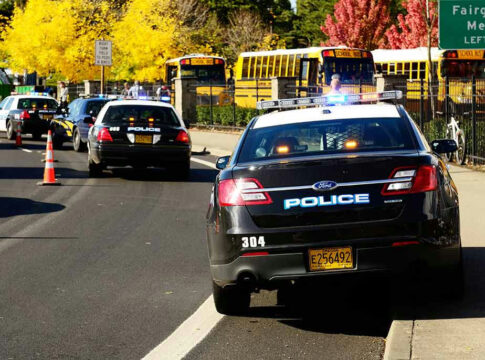Shock is sweeping Texas as over 100 educators face suspension for allegedly inciting violence after the assassination of Charlie Kirk, raising urgent questions about professional conduct and the boundaries of authority in American schools.
Texas Teachers Suspended Amid Outrage Over Violent Rhetoric
In the wake of conservative commentator Charlie Kirk’s tragic assassination, over 100 Texas educators now face suspension for allegedly posting or endorsing violent rhetoric on social media. The Texas Education Agency (TEA) responded swiftly after receiving 180 complaints from parents and citizens, many alarmed by posts that appeared to celebrate the violence or encourage further unrest. Governor Abbott condemned the behavior, emphasizing that no public servant has “carte blanche authority to celebrate or sow violence”—a phrase now at the center of heated legal and political debate. This unprecedented disciplinary action highlights growing concern about the politicization of classrooms and the erosion of core values in education.
TEA officials announced that investigations are underway across multiple districts, focusing on violations of professional standards and state law. According to agency representatives, teachers are held to a higher standard as role models for youth and must not cross the line into advocating violence, regardless of political tensions. Legal experts note that the term “carte blanche” refers to unchecked freedom, and in this instance, authorities are drawing a line to uphold both institutional integrity and public safety. The suspensions have reignited debates about the proper limits of free speech for educators and the role of government oversight in protecting children from harmful influences.
Legal and Procedural Boundaries: Setting the Limits on Authority
State and local authorities have cited both legal precedent and professional codes as the basis for disciplinary action. The phrase, “does not give carte blanche authority to celebrate or sow violence,” has been invoked by school district leaders and echoed by state officials to clarify that freedom of expression in schools is not absolute—especially when it may incite disruption or threaten safety. Legal institutions, including courts and school boards, now face the challenge of defining where robust debate ends and dangerous rhetoric begins. The disciplinary process for the suspended teachers remains ongoing, with some educators and unions raising concerns about due process and the possibility of overreach.
These developments unfold amid a politically charged environment, with tensions running high between proponents of stricter standards and those who warn against potential infringements on individual rights. Critics point to the need for clear, consistent guidelines that balance constitutional freedoms with the imperative to protect students and uphold community standards. The situation has exposed deep divisions within the education system and broader society over the appropriate boundaries of professional authority and personal expression.
Community Impact and Parental Concerns Over School Culture
Parents and taxpayers across Texas have voiced strong reactions, with many expressing frustration over what they see as the infiltration of radical agendas and the normalization of divisive rhetoric in public education. Calls for accountability have intensified, as community members demand assurance that schools remain safe spaces free from political indoctrination and threats to traditional family values. State officials have pledged transparency and strict enforcement of professional standards, vowing to restore trust in the education system and uphold the principles that define local communities.
While the investigation continues, the outcome is likely to influence future policy on educator conduct and set a precedent for how states address similar incidents nationwide. The episode underscores the need for vigilance in maintaining constitutional protections and safeguarding children from harmful influences, while ensuring that the rights of teachers and staff are respected throughout disciplinary proceedings.
Expert Perspectives and Ongoing Policy Debate
Education leaders and legal authorities are weighing in, emphasizing the importance of clear professional boundaries and the dangers of unchecked authority in schools. Superintendents have reiterated that educators must adhere to standards of conduct that reflect the trust placed in them by parents and the public. Courts may ultimately be called upon to clarify the limits of free speech in the education context, particularly when it comes to matters with potential for violence or disruption. Political leaders, meanwhile, are seizing the moment to call for renewed commitment to constitutional values and the protection of American families from radical or dangerous agendas in public institutions.
As the facts continue to emerge, the situation serves as a stark reminder of the high stakes involved when authority goes unchecked and the critical need for principled leadership at every level of government and education. The ongoing debate over the boundaries of acceptable conduct will likely shape not only the future of Texas schools but also the broader national conversation on constitutional rights, professional ethics, and the preservation of conservative values in American society.
Sources:
Quorum Report: Texas newsclips on government, education, and politics
U.S. Supreme Court: Hunter SOCTUS Appendix (March 11, 2022)
U.S. Supreme Court: Hunter Appendix 2 of 2 (March 15, 2022)


